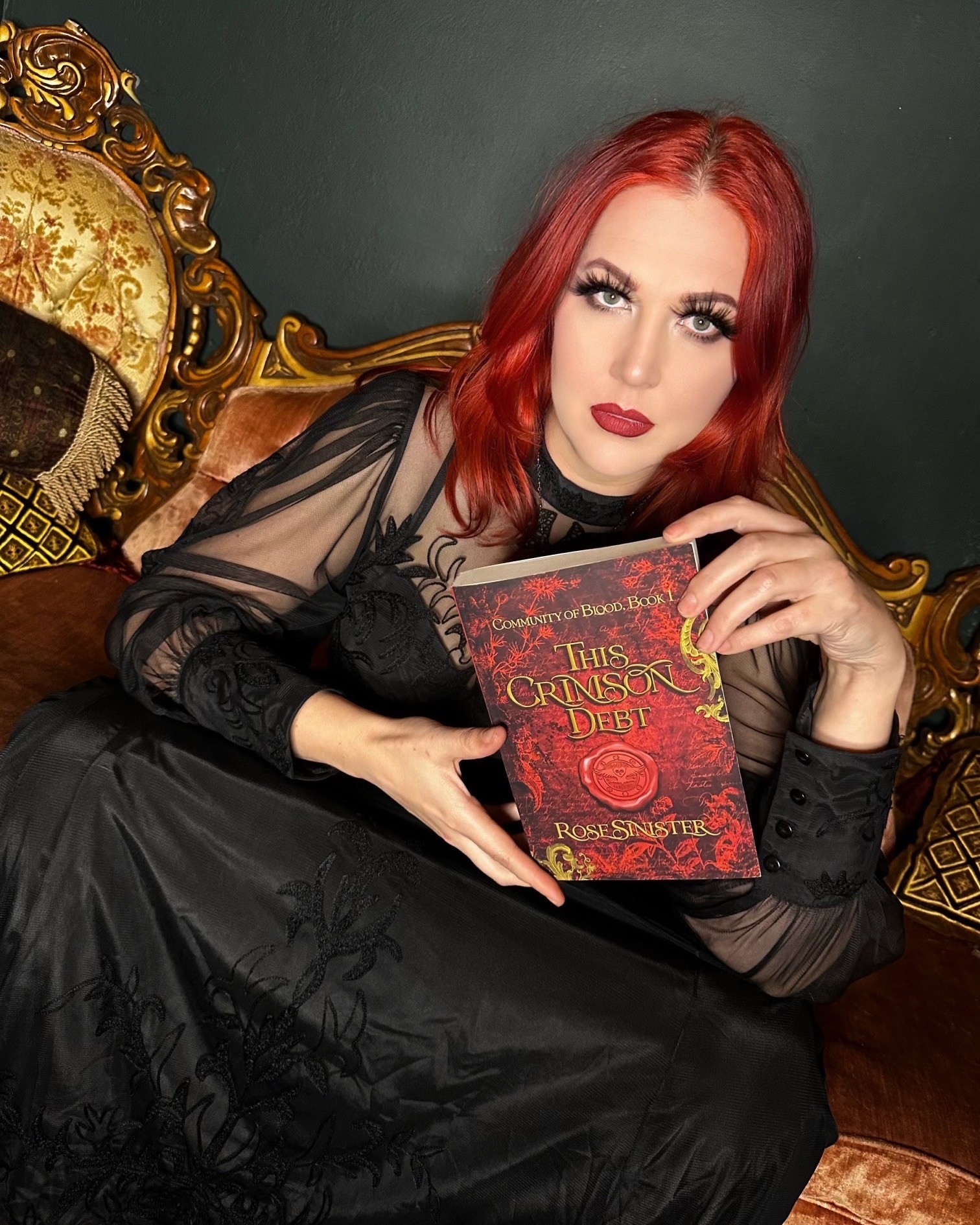We caught up with the brilliant and insightful Rose Sinister a few weeks ago and have shared our conversation below.
Rose, thanks for taking the time to share your stories with us today How did you learn to do what you do? Knowing what you know now, what could you have done to speed up your learning process? What skills do you think were most essential? What obstacles stood in the way of learning more?
I’ve always been a reader; one of those precocious children who started picking up chapter books before they hit elementary school; the kind of kid who was reading at a high school level by the third grade. But decades of being a reader isn’t what thought me how to be a writer.
Don’t get me wrong—a LOT of aspiring writers learn the basics of story craft that way, but I struggled, literally for decades, until I began to intentionally study the craft of narrative structure. It started with a YouTube video by Kat O’Keefe about her own “3-Act, 9-Block, 27-Chapter” story structure, which lead me to “Save the Cat Writes a Novel,” which led me to other books on the craft of story structure that enabled me to transform myself, in a very small window of time, from “aspiring writer” to “published novelist.”
There’s something of a formula for weaving together moments of high emotional tension and release that creates a compelling experience for the reader—and for the longest time I eschewed the idea of formula, because “formulaic” is a practically an insult in creative fields.
For me, the breakthrough in understanding arrived when I realized that the most prolific creators who deliver the most consistent quality output are masters of their own formulas. They understand the structure of their songs and stories and paintings so intimately, they can warp and bend and adjust their own formulas almost infinitely, and never run out of creative steam.
It’s a bit paradoxical: the more you, as a creative, fully lean into and embrace the solidly established formulas, tropes, and structures that define your creative field, the more you study the foundational forms of your craft, the more you will solidify your own voice and style. Understanding formula isn’t cheating the creative process; it is LIVING the creative process.
That was a life lesson it took me entirely too long to learn. It’s all right if you need to learn how to walk before you can run. It’s better to have tenacity and curiosity than prodigious natural talent. The myth of the natural genius keeps so many people with talent from pursuing their creative goals. They think, “I’d love to be able to do the ______ does, but I don’t have that level of skill.” They don’t realize that skill can be learned, through practice and study. Even geniuses practice and study.
It is the DESIRE to create that makes a person creative—not the skill. Technique can be mastered.
I wish I understood just how important this is when I was younger, instead of wasting time feeling incompetent because my work was inconsistent.
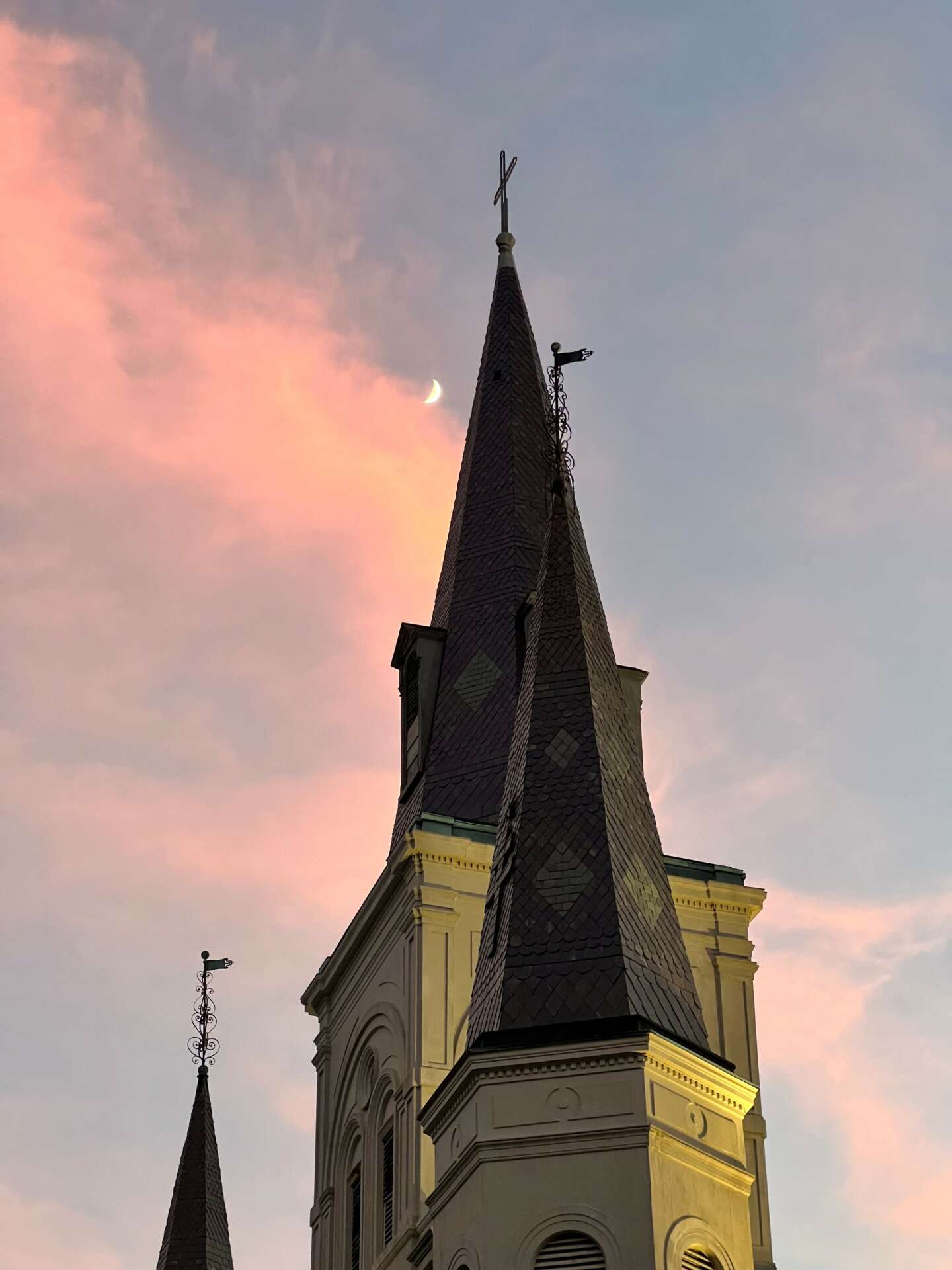
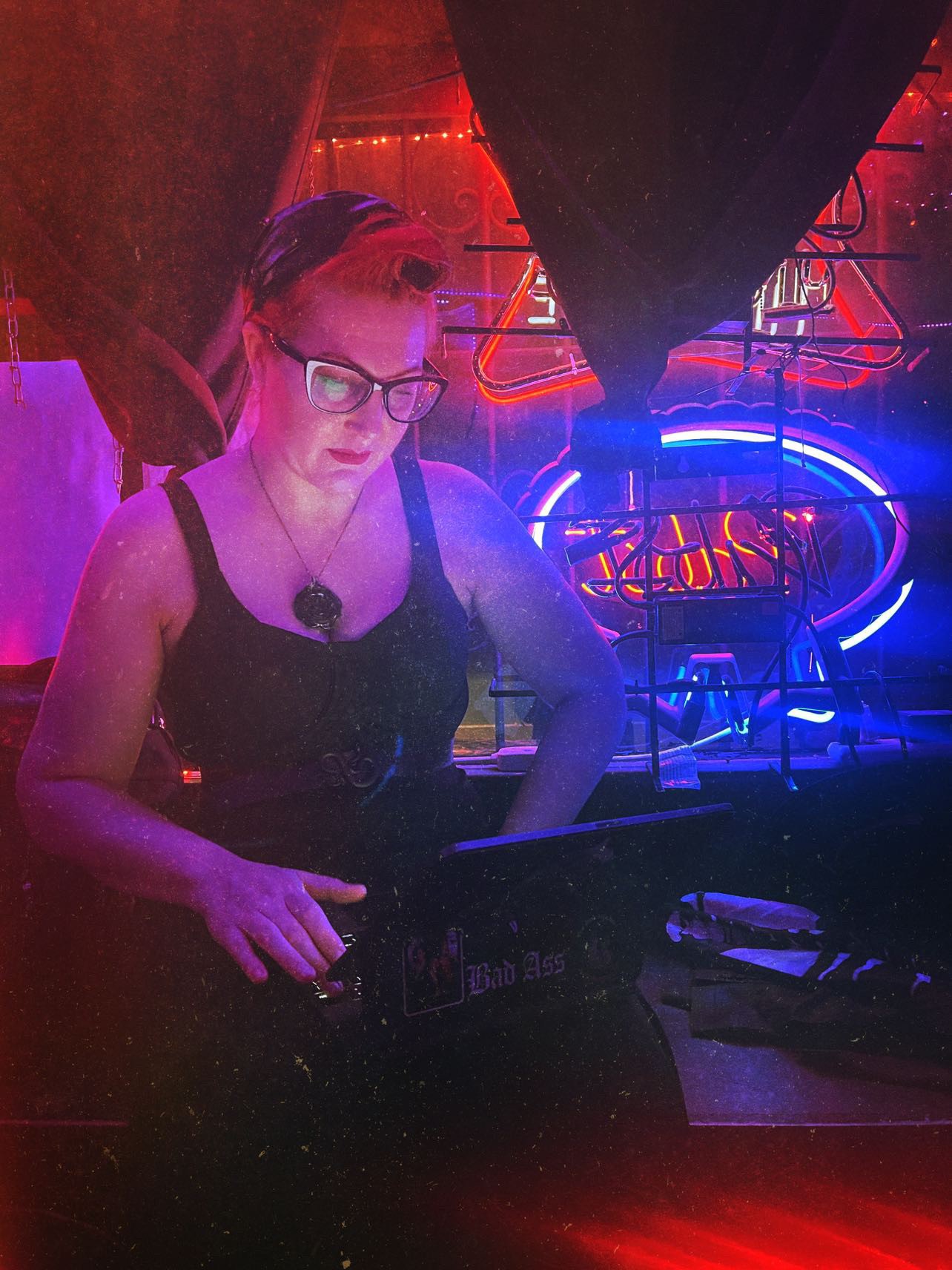
Awesome – so before we get into the rest of our questions, can you briefly introduce yourself to our readers.
I first encountered Anne Rice’s “Interview With the Vampire” when I was six years old, sometime in the first grade—a babysitter left behind a copy of the book one night, and I hid it from my parents, knowing it was the sort of book they wouldn’t approve of. And I read it, because I was a precocious reader. And when you are a deeply sensitive and intelligent six-year-old girl, and you read about a perpetually six-year-old vampire child names Claudia, well…
That’s the kind of thing that shapes a person for life.
In my early 20’s I started visiting New Orleans as a tourist; following Hurricane Katrina in 2005 I moved to the city full-time. Eventually I found my calling as a ghost and vampire tour guide for Haunted History Tours, and this led to some amazing opportunities that I’m profoundly grateful for. I’ve been featured on The today Show, Mysteries Decoded, and Southern Charm: New Orleans. I produced a well-received podcast, “Rose Sinister: Vampires” that ran intermittently from 2018 until the Pandemic.
I always thought that I would expand my French Quarter tours into a public speaking career, possibly alongside a series of non-fiction books on the cultural importance and ongoing relevance of vampire stories, but a series of catastrophic life events thrust me in a different direction.
In 2019, I lost my mother to ordinary influenza. In 2020, in addition to the hellscape that was the COVID-19 pandemic, I lost my job as a tour guide, and nearly lost my husband, and my own life, it a terrifying car accident. I crawled out of the wreckage of our shattered car and made it back to the road for help with my back fractured in three places, feeling like I had faced down Death herself and said, “Not today.”
Not today, not tomorrow, not next week….not for a long time. I was determined not just to live, but to thrive.
My father died of cancer less than a week later.
By the 1-year anniversary of the accident, I’d written my debut novel, THIS CRIMSON DEBT, a New Adult novel (intended for readers 18-30) about loss and trauma and community and identity. It’s a book that I don’t think I *could* have written before I was brought so low.
Now, I’m back performing vampire tours in the French Quarter in New Orleans five nights a week. I’m working on the sequels to THIS CRIMSON DEBT (book 2, A BLOOM OF RUST, comes out in January) and I’m working with Rachel Clinesmith, CEO of Vampyre Cosmetics and the editor of Undead Magazine, on re-vamping my old podcast, which will be called “Sinister Undead.” We’re very excited about this new project.
I’m still also hoping to establish myself as a public speaker (hey, TEDX organizers: call me!), and you know what, that non-fiction book about vampires might still be on the table. I’m about to resume teaching classes on vampires in fiction for the online school University Magickus, and all in all, I’m busy, but very, very creatively fulfilled.
I’ve often said that “vampires may not have reflections, but their stories do.” My favorite vampire stories have always been the ones where the vampire characters use their immortality to pursue a singular passion over the centuries. That’s what I want to reflect: a life that endlessly creative, unique, and true to my Self.
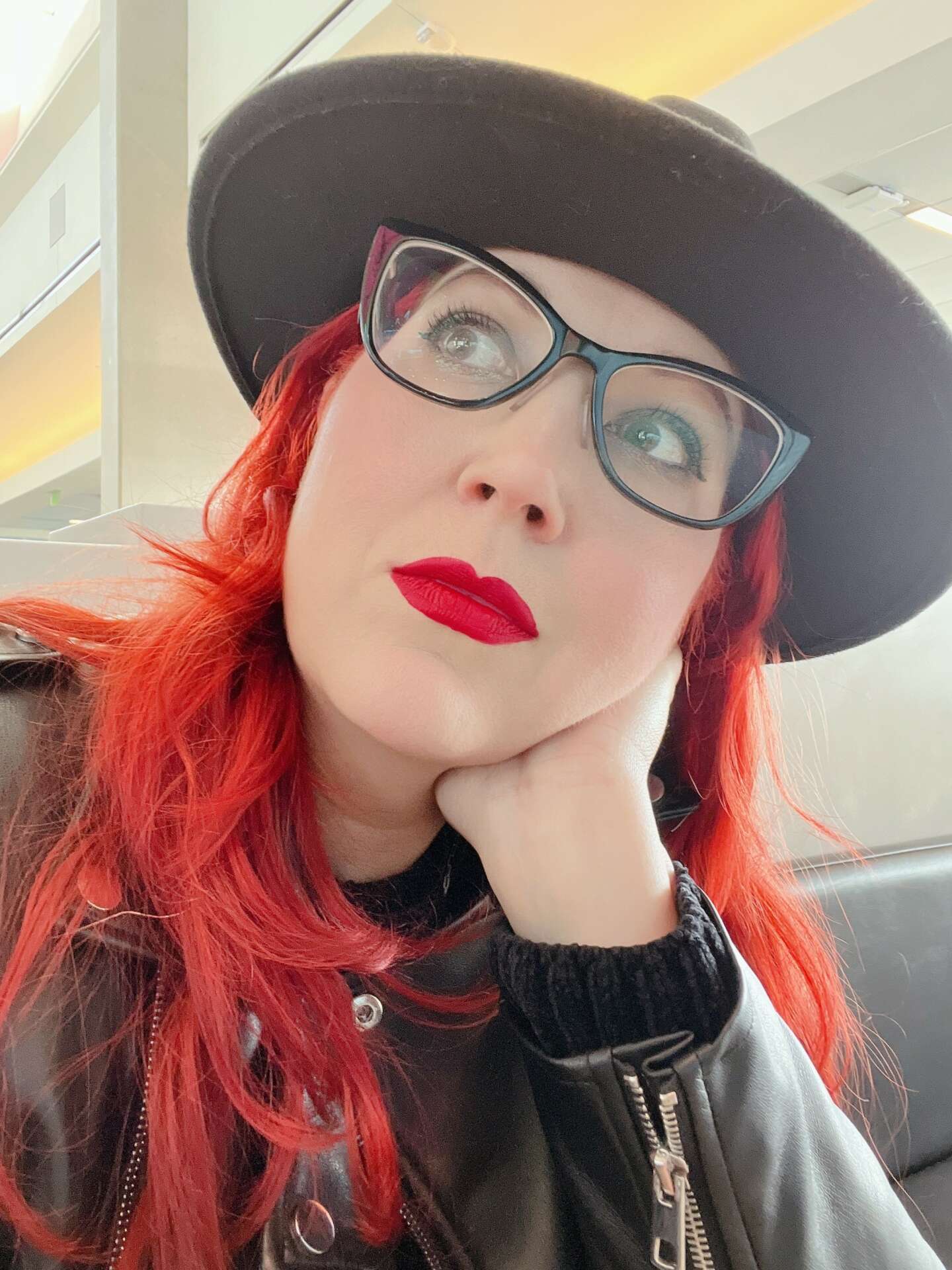
In your view, what can society to do to best support artists, creatives and a thriving creative ecosystem?
When I first moved to New Orleans in 2006, rent was higher than it had been before Katrina, but still cheap, especially compared to the cost of housing today. It was VERY possible to work a robust part-time job of 25-30 hours a week and still be able to afford rent on a tiny-but-charming apartment, as well as food and utilities, and still have money (and, more importantly, TIME) left over to be creative.
Creative people need time to sit around and think, and process the world around us, and to notice, and observe, and dream. We need the ability to support ourselves financially in ways that do not drain us of our precious creative resources.
The best way to keep “weird” cities weird is to support affordable housing, and to oppose things that threaten it. AirBnB and other short term rentals have destroyed affordable housing in New Orleans and many other places. 10 years ago, I could afford my own apartment. Now, I have to have roommates. I’m in my 40’s.
Don’t stay in AirBnB’s when you travel, especially to places with thriving creative communities. Your “authentic” vacation experience must not come at the cost of someone else’s very real lived experience.
Support local, state, and federal initiatives to boost minimum wage, the social safety net, and grants for working artists. Creative people need lots of support when we are starting out. A lot of times, our “runways” need to be a lot longer before we can soar aloft on our own wings. There’s nothing weak or lazy about the creative experience; it’s just not very compatible with capitalism as we know it today.
But things haven’t always been the way they are right now, and we can and should take initiative to roll back some of the hardships that make life for creative individuals more precarious now than ever before.
Support independent artists, writers, small business owners buy purchasing our wares, absolutely. But also support walkable urban infrastructure and public transportation, affordable healthcare, food security initiatives, etc. We need systemic change and support as much as we need individual love and support.
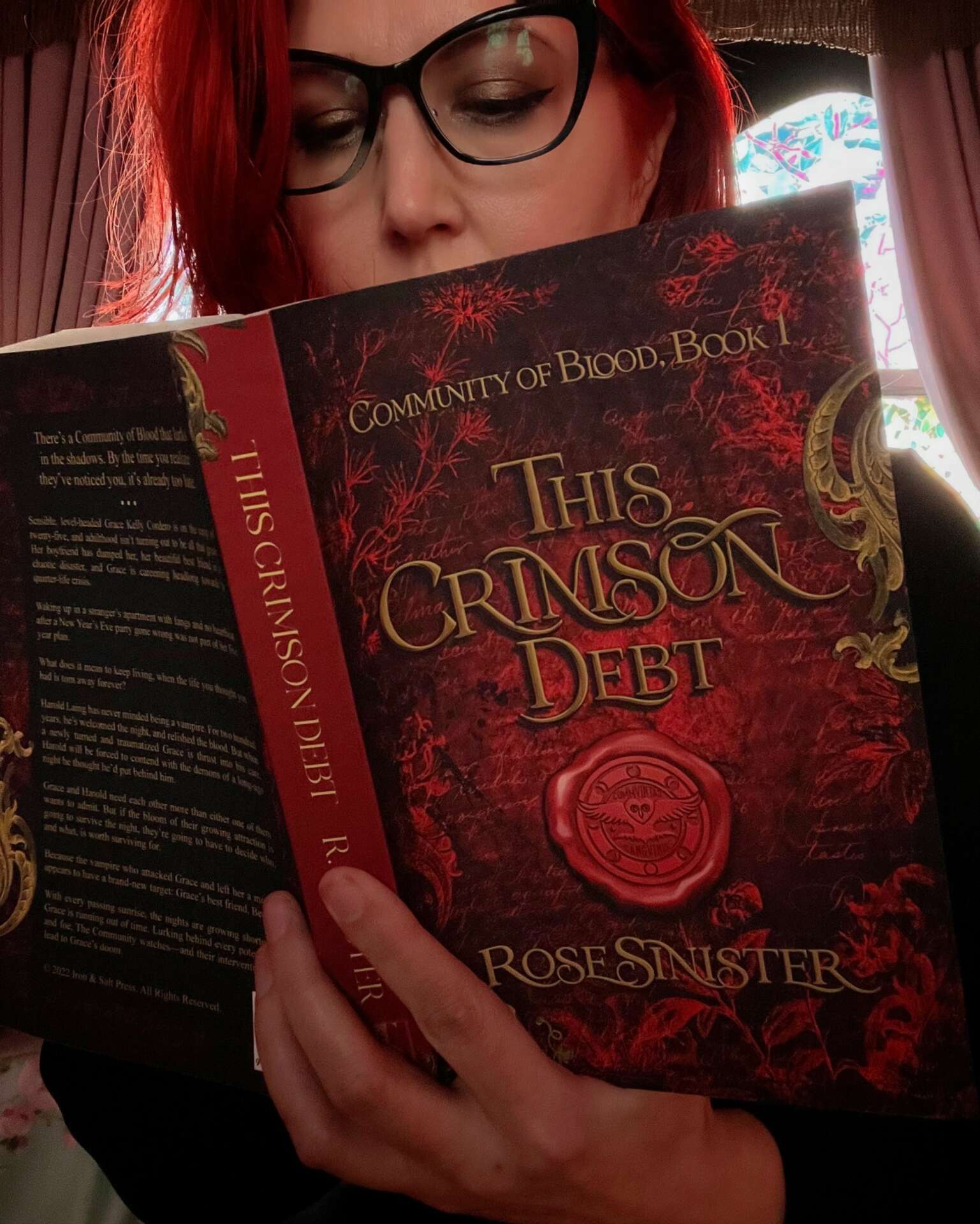
Is there something you think non-creatives will struggle to understand about your journey as a creative?
I think a lot of non-creative people perceive of creative output as something that can be managed like mundane tasks, such as data entry.
Even data-entry experts will have hours, days, and weeks where they are more productive than others, however. We are human beings, not machines!
Often I find myself struggling with people who don’t understand that I can sit down and write every day, but my writing won’t be *good* if the only time I have to sit down and write is squeezed between the shifts of two different jobs, and I’m trying to shoehorn creative time into time I need to be spending at rest.
Creativity isn’t just something that’s “nice to have” if we’ve “worked hard enough to earn it” (where the values of how hard we have to work to earn anything is an ever-moving goalpost); human societies have depended on and, indeed, been defined by the creative work they’ve left behind for as long as humans have been human.
Honoring, valuing, and making space for the sacred art of creativity is how all people, perhaps ESPECIALLY non-creatives, honor our collective humanity. Because we are nothing without our art and our stories.
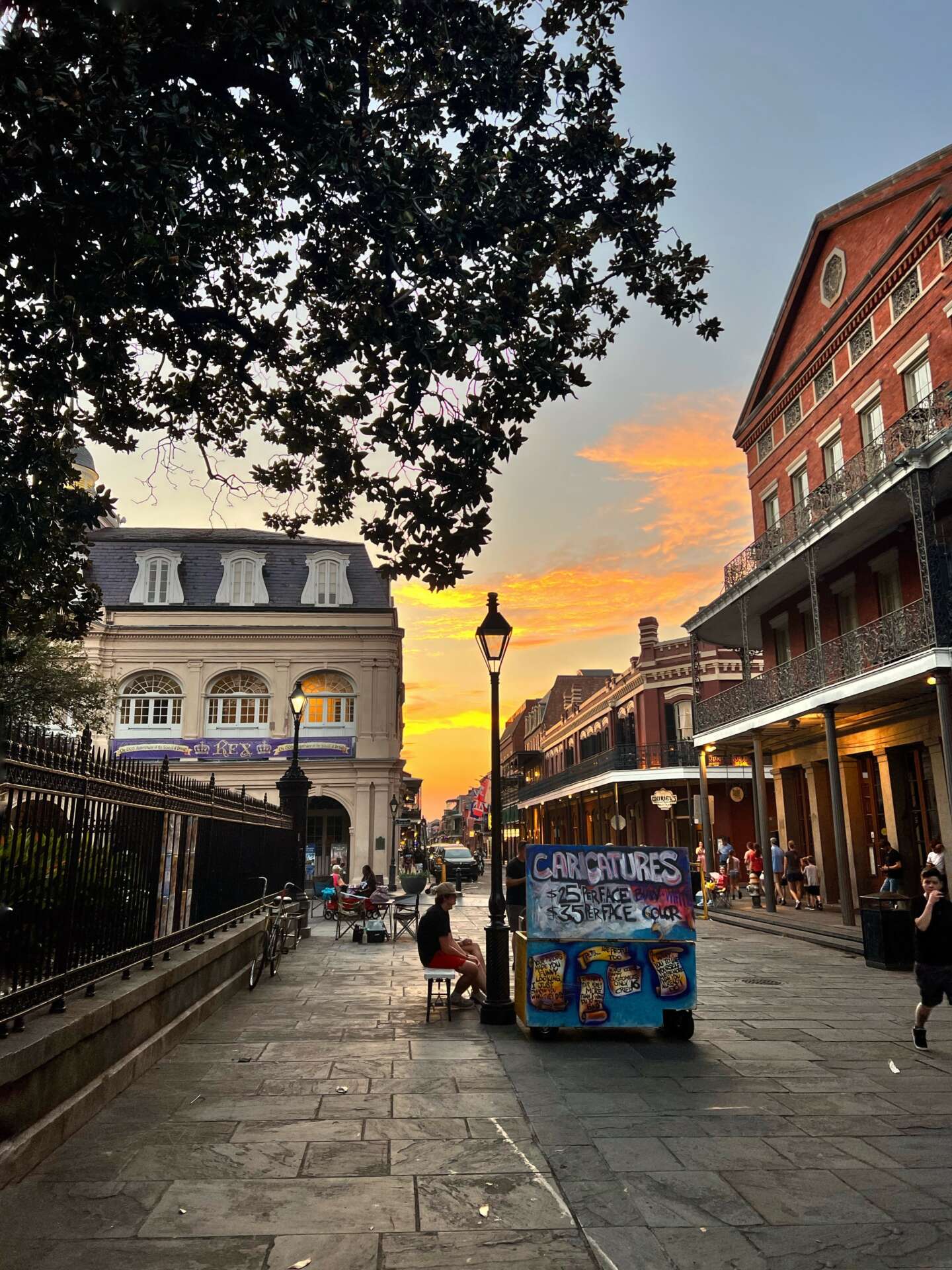
Contact Info:
- Website: https://www.rosesinister.com
- Instagram: RoseSinister
- Facebook: RoseSinister
- Twitter: Rose_Sinister
- Youtube: RoseSinister
Image Credits
Image of me holding book, Rachel Clinesmith. Image of me writing in nightclub, David Zombie. All other images are my own.


